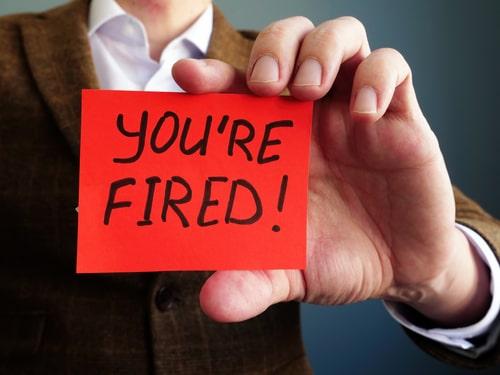When Can an Employee Sue an Employer for Wrongful Termination?
 Nobody should have to face discrimination in the workplace. Unfortunately, far too many employees are subject to harassment and other forms of discrimination based on their race, gender, sexual orientation, or other factors. Some of the most serious discrimination cases involve wrongful termination. When an employee is terminated from their job for illegal reasons, their loss of income can cause a great deal of financial difficulty, as well as significant emotional distress. Workers who have been wrongfully terminated will need to understand how they can take legal action against their former employer and address this issue.
Nobody should have to face discrimination in the workplace. Unfortunately, far too many employees are subject to harassment and other forms of discrimination based on their race, gender, sexual orientation, or other factors. Some of the most serious discrimination cases involve wrongful termination. When an employee is terminated from their job for illegal reasons, their loss of income can cause a great deal of financial difficulty, as well as significant emotional distress. Workers who have been wrongfully terminated will need to understand how they can take legal action against their former employer and address this issue.
Illegal Reasons for the Termination of an Employee
As is true throughout most of the U.S., Pennsylvania is an “at-will employment” state. If an employee does not have a contract or other provisions stating otherwise, either they or their employer may choose to end their employment at any time and for any valid reason. While a person may be fired because of poor job performance, or they may be laid off because an employer has encountered financial difficulties and is no longer able to pay their wages, there are a number of cases when a termination may be illegal. These include:
-
Discrimination - An employee cannot be terminated because of their race, gender, religion, or age. A person cannot be fired because they have a disability or because of pregnancy or marital status.
-
Retaliation - An employer cannot fire an employee because they engaged in certain types of actions. These include reporting sexual harassment or making a workers’ compensation claim. An employer also cannot terminate a person because they refused to take actions that would violate the law, and they cannot retaliate against whistleblowers who report fraud, safety issues, or other violations to government officials.
-
Breach of contract - If a person has an employment contract with their employer, the employer will be required to follow the terms of the contract when terminating the employee. An employer may only fire a person for cause (such as inadequate job performance) if the terms of the contract allow them to do so. However, contracts must be in writing, and oral or implied contracts will not be recognized.
-
Violations of public policy - An employer cannot terminate an employee because the person took leave for valid reasons, such as to serve jury duty. Employees are allowed to take unpaid leave under the Family and Medical Leave Act (FMLA), including to receive medical treatment or to care for a family member who is receiving treatment. Employers must allow a person to return to work after taking FMLA leave, and they cannot terminate a person who chooses to take this type of leave.
If an employee believes that they were wrongfully terminated, they may file a civil lawsuit against the employer. If they are successful, the employer may be required to restore the person to their former position, and they may also be required to pay the employee for any income lost due to the termination. An employee may also seek compensation for other types of damages, such as the emotional distress they suffered because of the employer’s actions.
Contact Our Pittsburgh Wrongful Termination Lawyers
If you believe you have been fired for illegal reasons, Colianni & Leonard LLC can help you determine your legal options. We will work with you to address your employer’s wrongful actions, and we will fight to make sure you will be made whole. Contact our Allegheny County wrongful discharge attorneys at 412-680-7877 to set up a complimentary, confidential consultation.
Sources:
https://dced.pa.gov/business-assistance/international/trade/labor-workforce/
https://www.legis.state.pa.us/cfdocs/legis/li/uconsCheck.cfm?txtType=HTM&yr=1955&sessInd=0&act=0222.&chpt=000.&subchpt=000.&sctn=000.&subsctn=000
https://www.mightyrecruiter.com/recruiter-guide/at-will-employment-wrongful-termination-laws-pennsylvania/

 412-680-7877
412-680-7877






